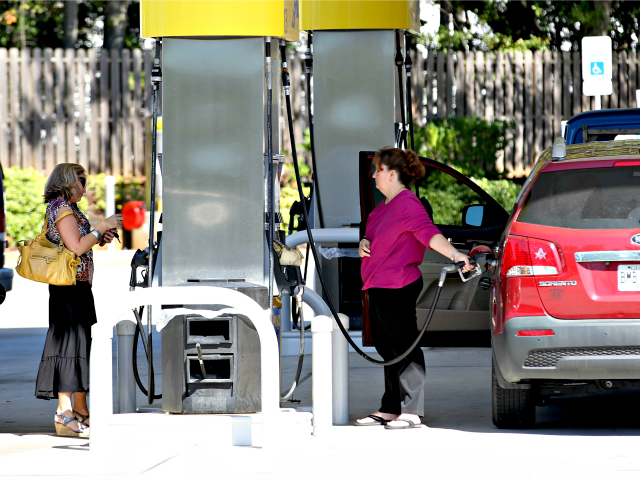In the halls of Congress, the rumblings for a national infrastructure bill are beginning to grow louder. Republicans and Democrats alike recognize the need to salvage America’s deteriorating roads and bridges and improve upon our dismal public transit system.
President Trump, for his part, seems ready and willing to sign a reasonable infrastructure bill put on his desk. But despite the bipartisan understanding that a serious overhaul should be made, the perennial question in Washington remains: How will America pay for it?
Like clockwork, certain well-connected organizations jumped at the chance to saddle everyday Americans with an even heavier tax burden, particularly at the pump. Indeed, a federal gas tax hike as high as 25 cents per gallon is the go-to option suggested by wealthy, out-of-touch elites. But such a proposal would devastate America’s working class, harm the economy, and betray the President’s populist agenda. Needless to say, a gas tax should absolutely be rejected.
First and foremost, the federal gas tax is just bad policy. Despite legislators’ seeming proclivity to them, increases in the federal gas tax have a storied history of failure. The last time the policy was tried, in 1993, hardly any money was actually used to fix infrastructure. Instead, substantial portions of the additional revenue were wasted on Congressional pet projects like museums, hiking trails, and other useless legislative pork.
Worse, gas taxes are inherently regressive, meaning that they disproportionately harm the poor and working class. People combating poverty cannot afford the newest, most fuel-efficient vehicles and, as a consequence, are forced to pay for fuel more often. Additionally, lower-income individuals already pay a larger portion of their total income on fuel than do the wealthy. Together, those factors clearly demonstrate that a gas tax increase—which would raise the price at the pump—unfairly targets the people already struggling to get by.
Increasing the federal gas tax, as some special interests would like, is more than just a poor administrative decision; it would be a slap in the face to President Trump’s America First agenda. The President prides himself on his blue-collar appeal, and rightfully so. President Trump has fought hard to protect the working class throughout the rust belt and has earned their support because of it.
But if these corporate special interests successfully pressure Congress into passing a gas tax hike that harms the coal miners and factory workers in middle America, they would do severe damage to the President’s coalition of forgotten men and women.
Luckily for the President, there is an alternative solution, one which boasts bipartisan support and funds key infrastructure projects without resorting to deleterious tax policy. It’s called the GAIIN Act.
The Generating American Infrastructure and Income Now (GAIIN) Act offers a fresh solution to the problem of aging infrastructure by gearing projects to America’s underserved communities. But rather than taxing the very people the program intends to help, the GAIIN Act funds the revitalization of roads, bridges, and public transit by actually shrinking the size of government.
The bill would require the Department of Agriculture to sell off its distressed debt—worth more than $50 billion—on the private market. The money raised from these assets would then be utilized for two distinct goals: the first half would go to paying down the United States’ burgeoning national debt, while the latter half would fund infrastructure programs within America’s poorest communities. No needless hiking trails or upscale museums. And most importantly, no new regressive taxes.
The GAIIN Act, if passed, would do wonders for the President’s bipartisan, working-class bona fides. The bill has already gained the support of members of the Congressional Black Caucus as well as the Freedom Caucus. Both Republicans and Democrats have co-sponsored the bill. What’s more, the legislation is a shot in the arm for the blue-collar working class, who form a crucial pillar of President Trump’s base of support. Rather than being punished by the pains of higher gas prices, many lower-income American will see the development of infrastructure specifically tailored for their communities.
Overall, the GAIIN Act provides the President with a unique opportunity to uphold his commitment to restoring middle America. But more than that, the bill offers a viable alternative for funding the critical infrastructure projects needed throughout the United States. A gas tax, while popular among the wealthy elite, has consistently been shown to harm the economy, raise prices, and erode the middle and working class. Rather than focus on the failed policy of increasing fuel prices, America should look to other, more promising solutions. After all, the only thing the gas tax fuels in poverty.

COMMENTS
Please let us know if you're having issues with commenting.